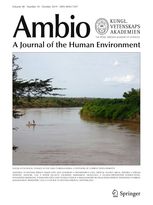Researcher

U of T researchers examine the effect of microfibres in Toronto’s wastewater: CityNews
University of Toronto researchers are looking into the effects of the billions of environmentally harmful microfibres that end up in Toronto’s wastewater system, CityNews reports.
The tiny synthetic particles end up in the wastewater after being shed from fabrics laundered in washing machines. Lisa Erdle, a PhD candidate in the lab of Assistant Professor Chelsea Rochman in the department of ecology and evolutionary biology, told CityNews microfibers “can have physical or chemical impacts on wildlife when they enter the food web.”
Read the full story.

National air pollution report highlights rush-hour traffic, diesel truck emissions as major areas of concern
Almost one-third of Canadians live near a major roadway – and this means they go about their everyday lives exposed to a complex mixture of vehicle air pollutants.
A new national study led by researchers at the University of Toronto’s Faculty of Applied Science & Engineering reveals that emissions from nearby traffic can greatly increase concentrations of key air pollutants, with trucks making a major contribution. Canada’s cold winters can also increase emissions while particle emissions from brakes and tires are on the rise.
Read the full story.

U of T study reveals building blocks of coralline algae off the coast of Newfoundland and Labrador
A study by University of Toronto researchers reveals new insights about a molecular mineralization process that creates coralline algae, which grow in rock-like clusters on the ocean floor, and the marine plant’s response to climate change.
The growth patterns of coralline algae, which often form the structural base for coral reefs, can provide important information about past climate events and how aquatic organisms are reacting to new conditions caused by global warming.
Read the full story.

App that tracks pollution incidents developed by Indigenous-led U of T technoscience lab: Toronto Star
An app developed by the University of Toronto’s Technoscience Research Unit (TRU) will track and report pollution from oil and chemical industries near Aamjiwnaang First Nation in southwestern Ontario.
The Toronto Star explores the origins of the Pollution Reporter app, a project led by TRU researcher Vanessa Gray and her sibling. Users of the app can fill out pollution reports in real time and send the information by email to the provincial environment ministry.
Read the full story.

Climate change could impact omega-3 levels worldwide, U of T researchers find
Climate change won’t just bring rising sea levels and more extreme weather — it could also impact your dinner plate.
A new University of Toronto study suggests that a warmer world will decrease the availability of a nutrient that is key to development and brain health. The study, published in the journal Ambio, investigates worldwide production of docosahexaenoic acid (DHA), a naturally occurring essential omega-3 fatty acid. The group of molecules is needed for higher-level brain functioning and cognition, memory, eyesight, particularly at crucial stages in fetal brain development.

U of T expert on how corporations are stepping up to tackle crises when governments around the world won’t
Today we’re facing a whole slew of social, economic and environmental crises – gun violence, climate change, gender inequality, job dislocation, food insecurity, plastic pollution and the opioid epidemic, to name just a few.
The responses from governments are often inadequate. Indeed, the problems are so complex that no single sector can address these challenges alone. Policies may not go far enough, or simply cannot address the entire issue. And, as we are seeing in the United States, governments may actually be pulling back on regulations meant to address these crises.
